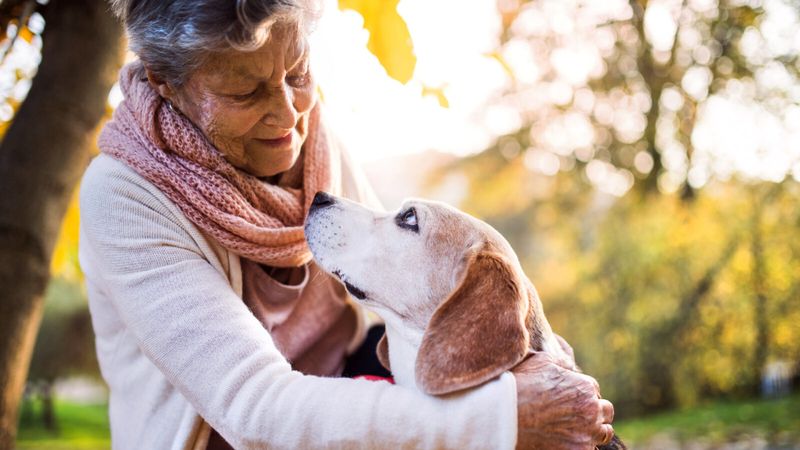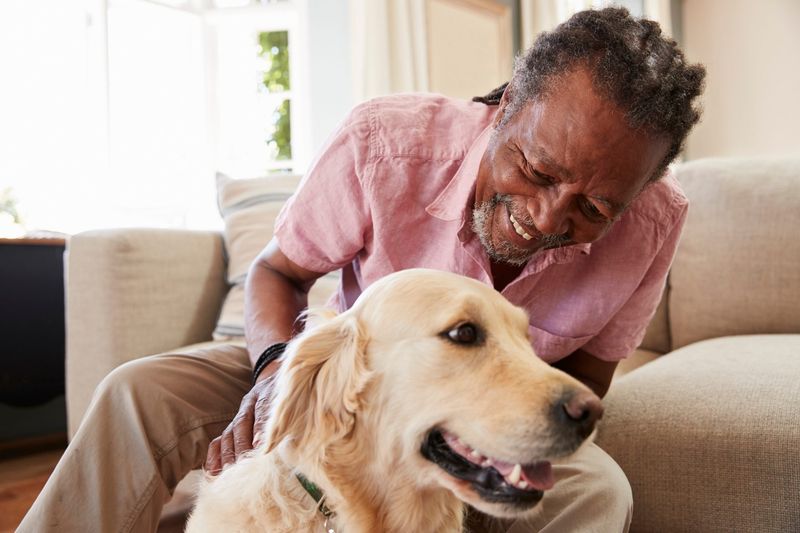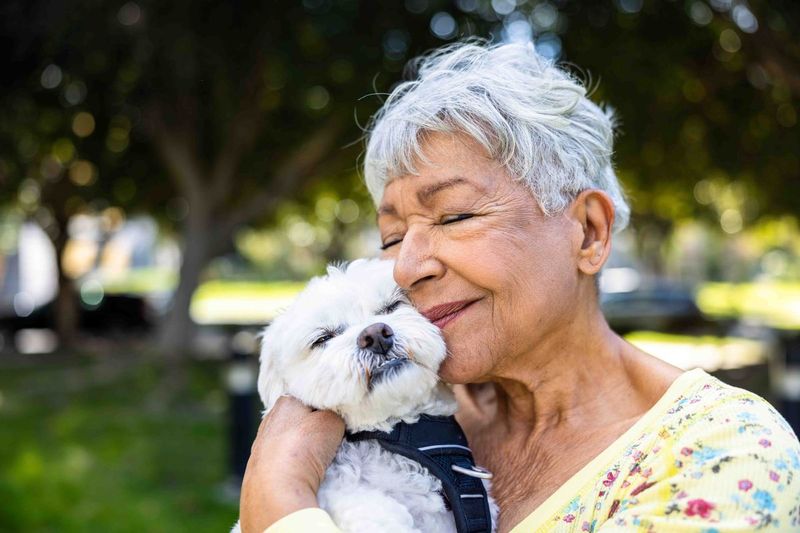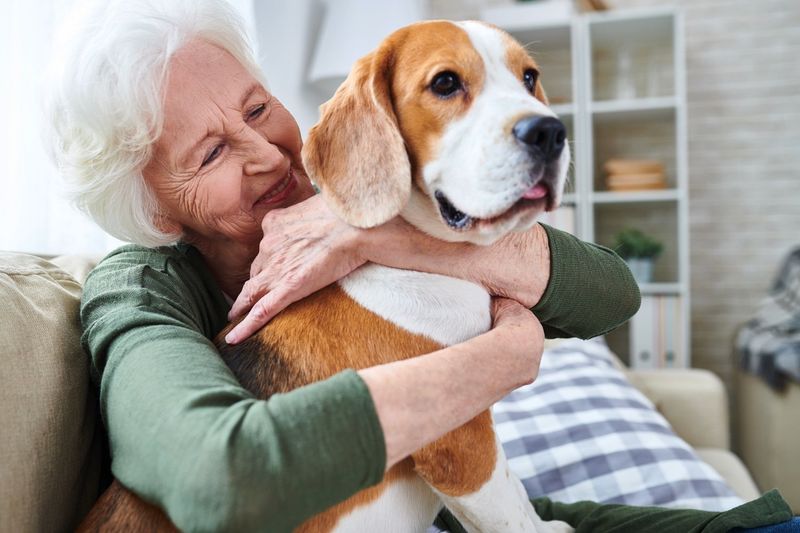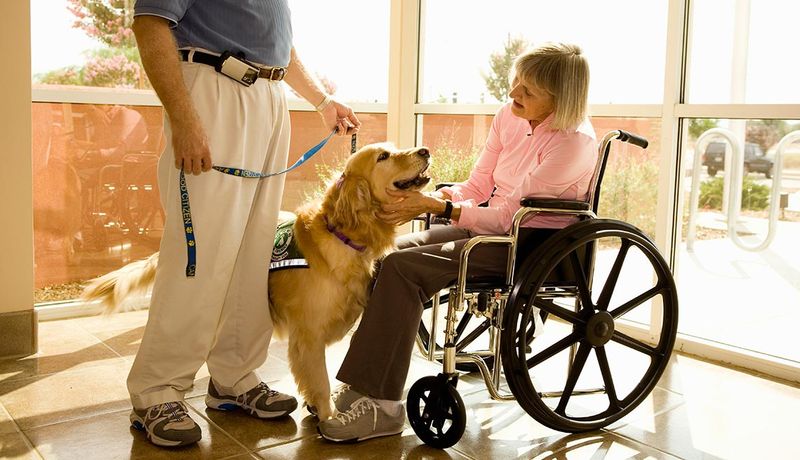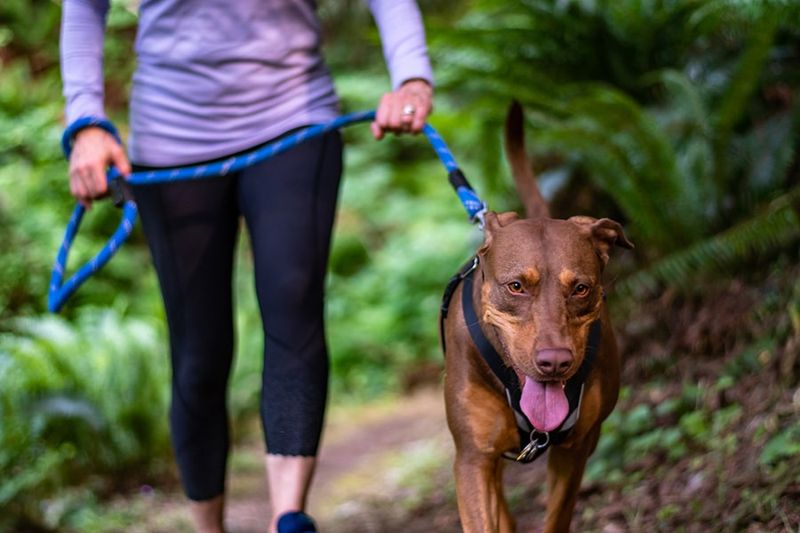Having a dog after the age of 60 can bring immense joy, companionship, and a sense of purpose. However, it’s essential to recognize the emotional benefits alongside the challenges to ensure a fulfilling experience. This blog post explores ten emotional benefits and ten challenges that come with owning a dog in later life.
Unconditional Love and Companionship
A dog’s unwavering affection fills the heart with warmth. They offer companionship that wards off loneliness, embracing their owner with love. When you return home, a wagging tail and eager eyes greet you, lifting your spirits.
This connection strengthens emotional bonds, creating a sense of belonging. Dogs are intuitive, sensing emotions and offering comfort. Their presence can alleviate stress, making them perfect confidants.
In moments of solitude, a dog is a loyal friend, providing emotional security. They listen without judgment, making them invaluable partners in navigating the ups and downs of life.
Increased Physical Activity
Dogs encourage an active lifestyle, promoting better health. Daily walks with a canine buddy become routine, enhancing physical well-being. These outings offer fresh air and new sights, invigorating the spirit.
The joy of playing fetch or a simple stroll keeps the body agile and mind sharp. Regular activity helps in maintaining mobility and vitality, crucial in later years.
With a dog’s playful nature, exercise becomes enjoyable. This companionship motivates seniors to stay active, fostering a positive outlook on life.
Social Interaction Boost
Dogs are social catalysts, bridging connections between people. Walking a dog often leads to spontaneous conversations with fellow pet lovers. These interactions foster community bonds and friendships.
In dog parks, seniors find opportunities to share experiences and laughter over canine antics. Dogs provide common ground, breaking ice and forming connections.
Through shared interest in pets, lasting relationships blossom, reducing isolation. This social support network enriches life, making everyday interactions more fulfilling.
Sense of Purpose
Caring for a dog instills a renewed sense of purpose. The responsibility of feeding, grooming, and nurturing a pet brings structure to daily life.
Seniors find fulfillment in meeting their dog’s needs, fostering a nurturing bond. This routine sharpens focus, encouraging active participation in life.
The joy of watching a dog thrive under their care empowers seniors, providing a goal each day. This shared journey of growth and companionship enriches their existence.
Emotional Support
Dogs offer emotional support during life’s challenges. Their presence provides comfort, easing feelings of anxiety or sadness. A dog’s companionship is calming, offering solace in times of distress.
Through their intuitive nature, dogs sense when their owner needs reassurance, providing a gentle nuzzle or wag of the tail. This empathy strengthens emotional resilience.
The unconditional love and support from a dog create an emotional safety net, fostering a sense of security and trust.
Mental Stimulation
Owning a dog stimulates the mind. Training sessions and playful interactions challenge cognitive skills, keeping the brain active. This mental engagement is beneficial for seniors, delaying cognitive decline.
Teaching a dog new tricks or solving behavioral puzzles requires creativity and patience, enhancing mental acuity.
The joy of witnessing a dog’s learning journey is rewarding, boosting self-esteem and cognitive health.
Routine and Stability
Dogs bring routine and stability to daily life. Their need for regular feeding and exercise establishes a structured day. This predictability provides comfort, reducing anxiety.
With a pet, seniors adhere to a consistent schedule, fostering time management and responsibility. The companionship encourages a balanced lifestyle.
Routine interactions with a dog create a sense of normalcy, enriching life with purpose and stability.
Enhanced Mood and Happiness
Dogs have a magical way of lifting spirits. Their joyful presence and playful antics elevate mood, inviting laughter. The unconditional love they offer fosters happiness.
Spending time with a dog releases endorphins, the body’s natural mood enhancers. This emotional boost combats depression, promoting well-being.
The companionship of a dog brings joy, making every day brighter. Their infectious enthusiasm for life inspires positivity and contentment.
Strengthened Sense of Security
Dogs, especially protective breeds, enhance the sense of security. Their presence deters potential threats, offering peace of mind. This feeling of safety empowers seniors to live independently.
A dog’s loyalty creates a protective environment, fostering trust and comfort at home.
This bond of protection strengthens relationships, ensuring emotional and physical safety.
Opportunity for Nurturing
Dogs offer opportunities for nurturing, fulfilling the caregiver instinct. The bond of tending to a pet’s needs enriches life, providing satisfaction and joy.
This nurturing role is rewarding, enhancing self-worth and emotional well-being. Caring for a dog brings warmth and love to daily life.
This companionship thrives on mutual care and affection, creating a harmonious living environment.
Financial Considerations
Owning a dog involves financial commitments. From food to veterinary care, the costs can add up, requiring careful budgeting. This challenge requires planning to ensure affordability.
Seniors must consider expenses related to grooming, training, and potential medical emergencies. Preparing financially is crucial to provide the best care.
Balancing these costs with fixed incomes can be challenging, necessitating resourcefulness and planning.
Physical Limitations
Physical limitations may affect dog ownership after 60. Energetic dogs require exercise, which can be demanding. Seniors need to match a dog’s needs with their capabilities.
Adapting to a pet’s activity level ensures a harmonious relationship. This challenge requires acknowledging personal limits and seeking suitable breeds.
Finding the right balance between exercise and rest is vital, ensuring both owner and pet thrive.
Time Commitment
Dogs demand time and attention, a challenge for seniors with busy schedules. Feeding, grooming, and exercise need daily commitment, requiring time management.
This responsibility, while rewarding, can be overwhelming. Seniors must evaluate their availability to ensure a balanced lifestyle.
Managing this commitment involves prioritizing tasks, ensuring both personal and pet needs are met.
Travel Limitations
Owning a dog can restrict travel plans. Seniors must consider pet care during trips, adding complexity to vacations. Planning requires finding reliable caretakers or pet-friendly accommodations.
This challenge necessitates forethought to ensure continuity of care, balancing travel desires with pet responsibilities.
Seniors must weigh their travel aspirations against the logistics of pet care, finding solutions for both.
Health Concerns
Health concerns can impact dog ownership. Seniors may face medical issues that affect their ability to care for a pet. It’s essential to assess health compatibility with a dog’s needs.
Regular veterinary visits for the pet also require attention, managing their health alongside personal care.
This dual responsibility demands vigilance and adaptability, ensuring both owner and pet maintain well-being.
Loss and Bereavement
The emotional impact of losing a pet can be profound, especially for seniors. The grief of saying goodbye is a challenging reality of pet ownership.
Preparing for this inevitable loss requires emotional resilience and support networks. The bond formed with a pet makes their absence deeply felt.
Coping with bereavement involves cherishing memories and finding ways to heal, honoring the love shared.
Behavioral Challenges
Dogs can present behavioral challenges, testing patience and adaptability. Training is essential, requiring time and effort to address issues like barking or digging.
Seniors must be prepared for the commitment, employing strategies to manage behavior positively.
This journey demands understanding and perseverance, ensuring harmony in the household.
Allergies
Allergies pose a challenge in dog ownership. Seniors must assess their sensitivity to pet dander, finding compatible breeds or solutions to manage symptoms.
Adapting living environments and using air purifiers can alleviate discomfort, ensuring a harmonious living situation.
This requires proactive measures, balancing health with the joy of companionship.
Training Needs
Training a dog is a rewarding yet demanding task. Seniors must commit to consistent teaching, fostering a positive environment.
This challenge involves patience and creativity, ensuring mutual understanding and respect. Proper training enhances the human-animal bond, enriching the relationship.
Successful training requires dedication, yielding a harmonious and fulfilling companionship.
Adaptation to Change
Adjusting to a dog’s presence involves adapting to change. Pets bring new dynamics, affecting lifestyle and home environment.
Seniors must embrace flexibility, accommodating their furry friends’ needs. This challenge involves openness to new routines and adjustments.
The journey of adaptation fosters growth and resilience, enhancing life’s richness.

